Tribal leaders wanted to elect a new Oklahoma governor. Now they have a backup plan
- Oops!Something went wrong.Please try again later.
- Oops!Something went wrong.Please try again later.
After years of tension with Oklahoma Gov. Kevin Stitt and a historic effort to oust him, tribal leaders now find themselves searching for a Plan B after the governor’s resounding reelection victory on Nov. 8.
Both the governor and tribal leaders have said they are open to working together. But it remains to be seen how, or if, they can bridge the divisions that marked Stitt’s first term in office and second gubernatorial campaign. Stitt countered broad tribal support for his opponent with unsupported claims that tribes were bankrolling attack ads against him.
Setting aside any bad feelings from the campaign trail would still leave the governor, who is a Cherokee Nation citizen, far apart from tribal leaders on key policy issues, especially the power of their respective governments to police and tax in Indian Country.
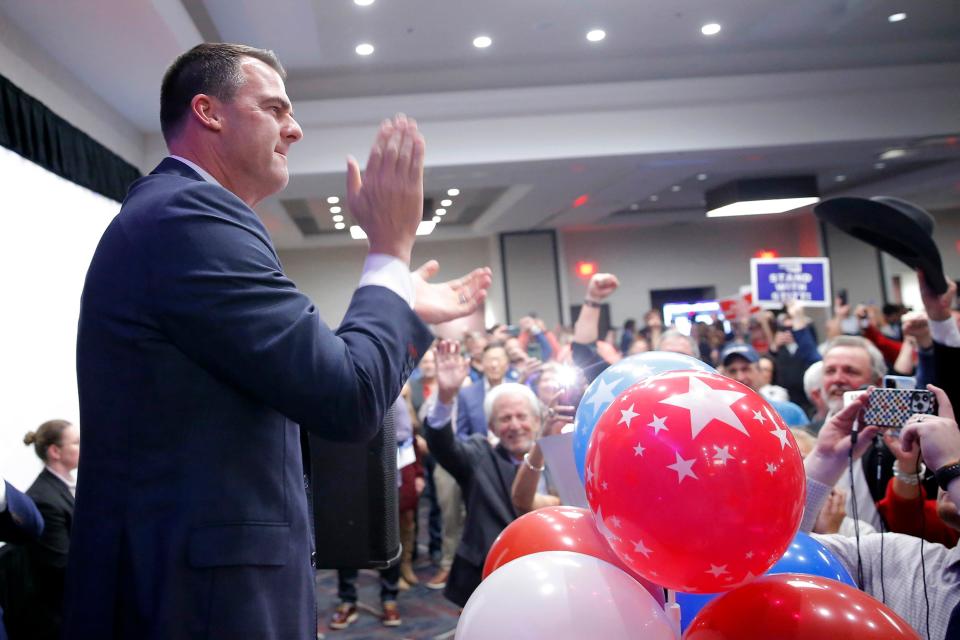
2022 election results: Find results for key Oklahoma races here
The fractured relationship between the governor and tribal leaders places extra weight on the Legislature to serve as Oklahoma’s top ambassador to tribal nations. Tribal nations have built strong bipartisan support among lawmakers, who voted earlier this year to override Stitt’s veto of a bill to recognize tribal convictions in state courts.
Incoming attorney general Gentner Drummond could also play a key role in resolving disputes between the state and tribes before they land in courtrooms. He has described working with tribal nations as one of his top priorities but has not disclosed where he stands on some of the biggest issues that worry tribal leaders.
“The election’s over, so we’re just going to have to deal with whatever comes our way,” said Norman Hildebrand, second chief of the Wyandotte Nation in northeast Oklahoma. “Hopefully the governor will maybe have a change of heart and start reaching out to the tribes and start to work with them more. The tribes could be the best partner he could have, mainly because of our economic development across the state.”
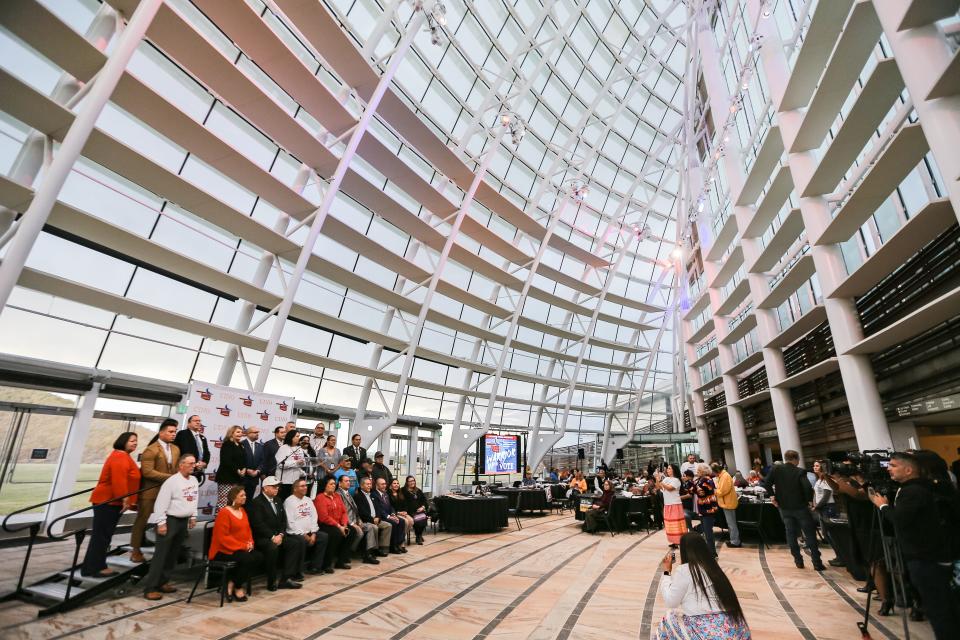
Efforts to organize Native vote in Oklahoma fall short in governor's race
Some polls predicted a tight race between Stitt and his challenger Joy Hofmeister, who would have been the first Democratic governor elected since 2006. But the Republican tide sweeping rural Oklahoma was too strong to overcome for Hofmeister and tribal leaders who rallied behind her.
Hofmeister marched in tribal parades, stumped at tribal voter rallies and attended the Choctaw Nation’s annual powwow in Durant days before the election. Choctaw Chief Gary Batton and other leaders of the Five Tribes appeared at a joint press conference to publicly endorse her campaign.
“We didn’t do that expecting to lose this election,” said Seth Paxton, a government affairs strategist for the Choctaw Nation in southeast Oklahoma. “We expected to win.”
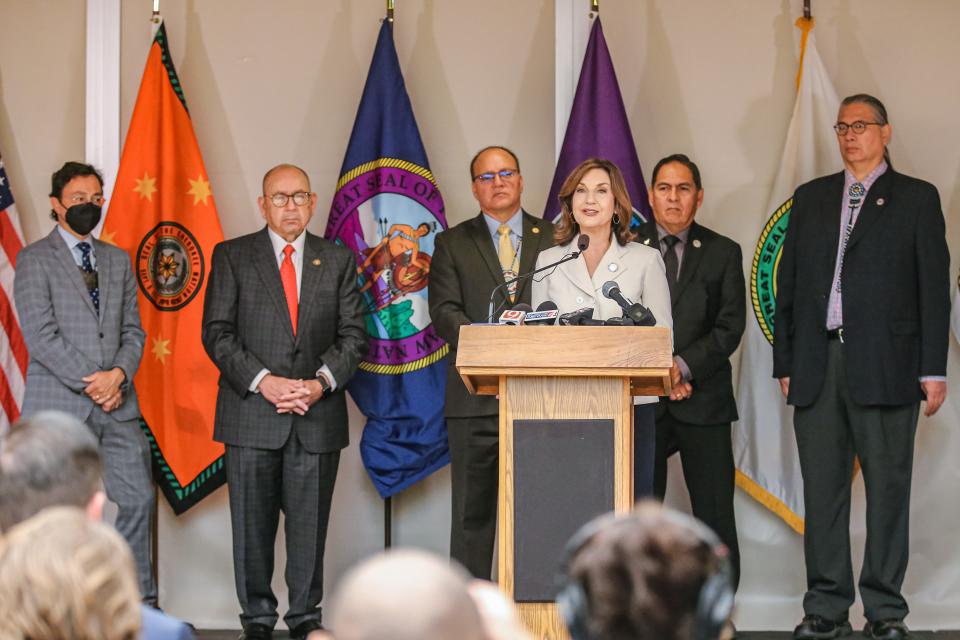
Instead, Stitt secured a second term by a double-digit margin and made gains in largely rural counties where tribes are based. At the same time, support for Democrats fell.
That pattern was true in Osage County, where the Osage Nation is based. Stitt earned 424 more votes compared to 2018, while his Democratic challenger received 546 fewer.
“Politics in Oklahoma has become like OU and OSU,” said Margo Gray, an Osage Nation citizen who leads United Indian Nations of Oklahoma, an intertribal advocacy group.
“It’s this hard line fight of — we’re just fighting ourselves,” she said, before adding that she believed the election made clear that Oklahoma voters want a Republican governor no matter what. “But was he the right one?”
For tribal leaders during Stitt’s first term, that answer was no. Talks between the governor and tribal leaders stalled over disputes on gaming, taxing and policing. They remain deeply divided over two Supreme Court rulings that addressed jurisdiction on tribal lands.
Oklahoma elections: State elections are secure, official says
But soon after it became clear Stitt would retain his office, Batton expressed hope that the dividing line drawn during the governor’s first term would not define the next four years.
“We hope Gov. Stitt’s second term will be marked by an understanding of the economic, cultural and social benefits tribes provide to our state, and that he will agree to work with us on issues affecting all residents,” Batton said in a written statement. “As always, we seek to focus on the things we can agree on, rather than our differences.”
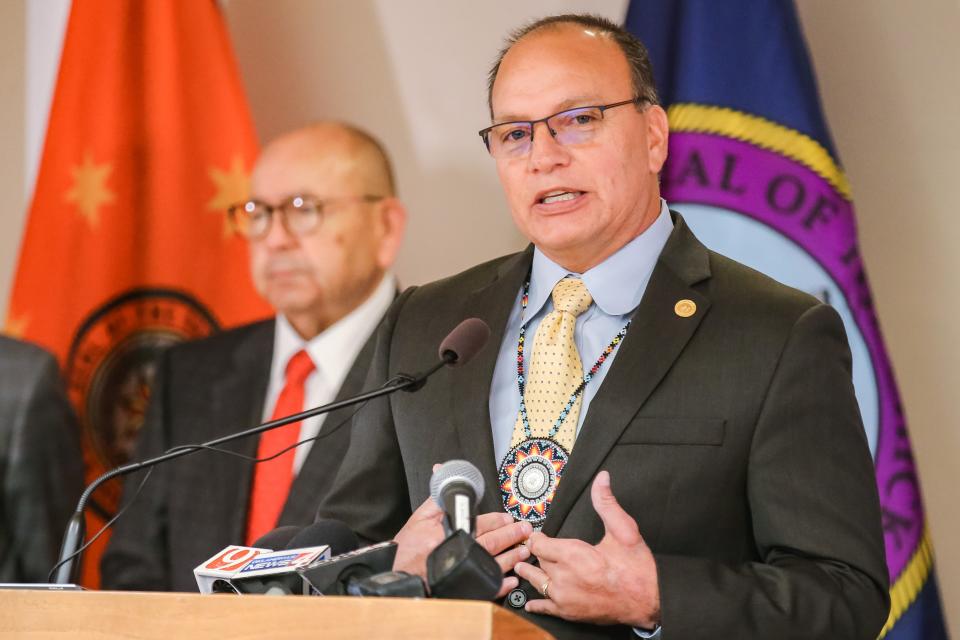
Stitt also said on Election Night that he believes he can work with tribal leaders, even after a bruising election cycle. But he also echoed past comments that cast the powers of tribal governments as unfair, while tribal leaders say exercising their inherent rights is vital.
“We’re all Oklahomans,” he said. “So, as long as we’re going to focus on fairness and equal opportunity for everyone, that’s what I’m all about. And that’s equal opportunity for tribal members and non-tribal members alike.”
He continued, “That’s the common ground we have to start with, is fairness for everyone, and then we want to move forward.”
Without governor, Oklahoma tribes turn to state lawmakers
Stitt’s stance misinterprets the inherent rights of tribal governments that existed long before Oklahoma, Gray said. She also believes he is ignoring the jobs, health care and other support tribes provide throughout the state.
On-the-ground impact is one reason tribes have built such strong support in the statehouse.
“Relationships with sovereign nations aren’t inherently partisan, especially when those sovereign nations provide support and community resources that are lacking,” said outgoing Rep. Collin Walke, a Democratic lawmaker and Cherokee Nation citizen who lives in Oklahoma City.
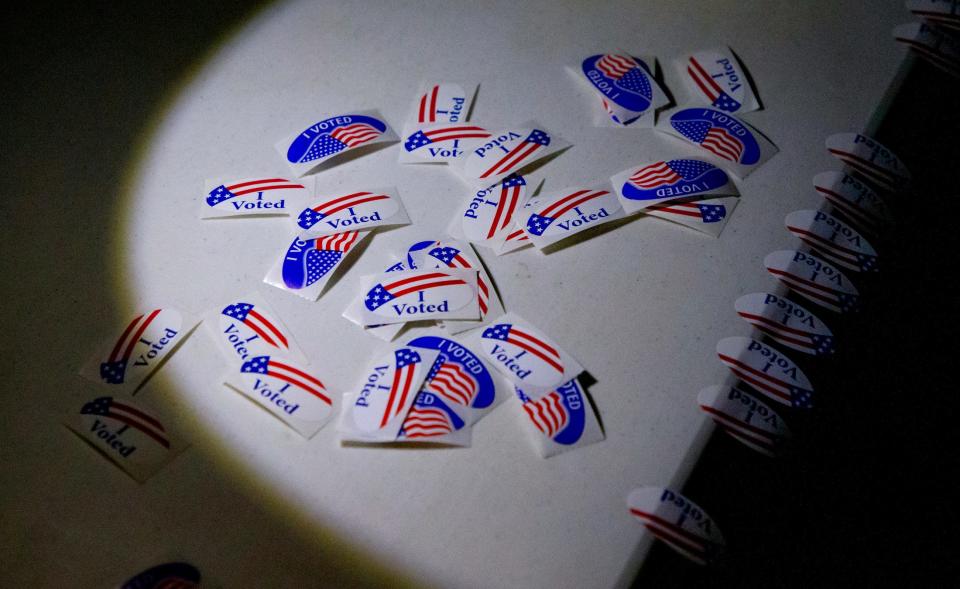
Walke was very involved in the House Native American caucus, which often heard directly from tribal leaders. He said Stitt’s reelection won’t erode the support for tribal priorities in the legislature. “They recognize that the tribes provide fundamental resources and assistance to their communities,” he said.
Leaders of Oklahoma's largest tribes tell state: Let schools teach about race
For the Choctaw Nation, staying in close communication with state lawmakers has been vital, especially when talks with the governor’s office have shut off. “They know that we need to cool the rhetoric,” Paxton said. “We need to focus on policy to make the state a better place.”
A new name in the attorney general’s office may also open more avenues for tribes. Stitt appointed current Attorney General John O’Connor, who lost in the Republican primary to Gentner Drummond, a Tulsa attorney and banker whose family operates Drummond Ranch in Osage County.
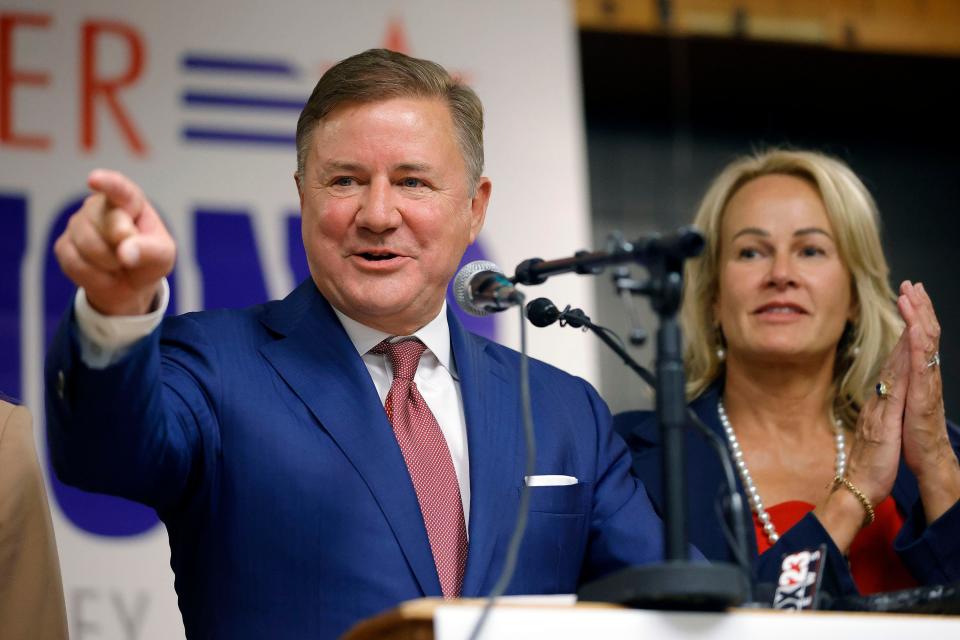
Drummond won the general election by a landslide over his Libertarian opponent. In a written statement, he described working with tribal leaders as a priority and said he has met with many as he prepares to take office. He did not provide further specifics about who he met with or disclose his stance on legal disputes involving the state and tribes.
“Working in close collaboration with the sovereign tribal nations of Oklahoma is a top priority for my tenure as attorney general,” he said. “There is much progress to be made on a number of issues related to the McGirt decision, as well as other matters that impact public safety and economic development.”
Cherokee Nation Attorney General Sara Hill said after the election that she had not yet met with Drummond. But she described herself as cautiously optimistic his office will adopt a more collaborative approach to working with tribes.
“It would be good to have an attorney general who — maybe, hopefully — is looking at this with fresh eyes and saying, ‘OK. Are there other ways to handle some of these situations?’” Hill said. “Or is litigation the only path forward between the tribes and the state on all of these issues?”
Molly Young covers Indigenous affairs for the USA Today Network's Sunbelt Region. Reach her at mollyyoung@gannett.com or 405-347-3534.
This article originally appeared on Oklahoman: After election, tribes look to move forward with or without OK governor

